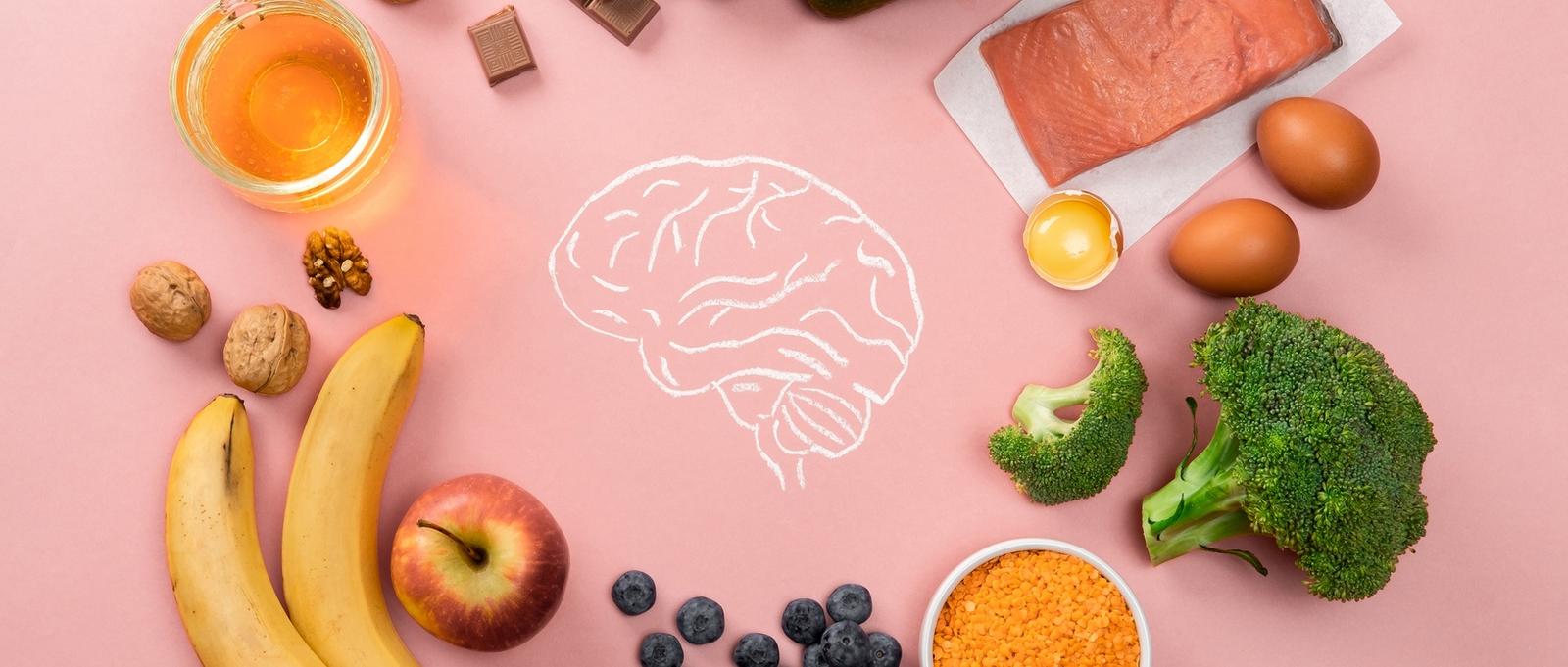
Can diet affect your ADHD?
Peer reviewed by Dr Colin Tidy, MRCGPAuthored by Victoria RawOriginally published 15 May 2025
Meets Patient’s editorial guidelines
- DownloadDownload
- Share
- Language
- Discussion
As more people are diagnosed with ADHD, there is growing interest in effective ways to help control its symptoms. One promising area of focus is nutrition, with emerging evidence suggesting that what you eat may play a role in managing the condition. We spoke to the experts for their take on whether your diet can impact ADHD symptoms.
In this article:
Attention deficit hyperactivity disorder (ADHD) is a neurological condition that affects around 5% of children and 4% of adults in the UK. People with ADHD commonly have trouble focusing, bursts of hyperactivity or impulsiveness, and moments where their mind feels foggy.
How diet can help manage ADHD symptoms
Continue reading below
How does what you eat affect ADHD symptoms?
Symptoms of ADHD may be managed with certain medicines, though incorporating healthy lifestyle habits can also help you cope.
Dr Tom MacLaren, Consultant Psychiatrist, Re:Cognition Health, London, UK explains that while no single diet can cure ADHD, emerging research suggests that certain nutritional choices may influence the severity of your symptoms.
Dr Miriam Mikicki, GP and Functional Medicine Practitioner, health.miro, London, UK says, "Your diet can have a big impact on your blood sugar. Excess rises and falls in blood sugar can certainly make your ADHD symptoms worse."
She adds that several vitamin and mineral deficiencies have also been linked to more intense ADHD symptoms.
According to Maclaren and Mikicki, children and adults with ADHD often have lower levels of certain important nutrients essential for brain function, regulating nerve signals, and mood stability.
These include:
Omega-3 fatty acids - critical for brain cell structure, dopamine regulation and managing inflammation.
Zinc and Vitamin B6 - involved in neurotransmitter synthesis, neural signaling, and dopamine and serotonin production.
Magnesium - important for nervous system regulation.
Iron - supports oxygenation and dopamine production. Low levels of ferritin, a protein that helps your cells store iron, has been linked to more severe ADHD symptoms.
Vitamin D - modulates brain-derived neurotrophic factor (BDNF), a protein that helps grow and protect brain cells.
MacLaren explains that addressing nutritional deficiencies through diet or supplements may improve focus and emotional regulation.
"For example, omega-3 supplementation has shown benefits in clinical trials," he says. "Iron correction may also reduce hyperactivity."
Which foods help improve ADHD symptoms?
Adding the right foods to your diet could boost brain function, help with focus, calm hyperactivity, reduce inflammation, and even improve your mood.
Mikicki says that fatty fish - such as sardines and mackerel - are a great source of omega-3, while eggs contain choline, which is important for brain function.
"Choline is a precursor to acetylcholine, a key neurotransmitter that plays a role in memory and focus," she explains. "Other foods which can help include leafy greens - a source of folate and iron - nuts and seeds - a source of zinc and magnesium - and berries, which are good sources of antioxidants."
MacLaren outlines a detailed list of food sources that may help reduce ADHD symptoms:
Omega-3s: Salmon, walnuts, flax seeds - support brain cell membranes.
Protein: Eggs, lean meats, legumes - stabilise blood sugar.
Complex carbohydrates: Oats, lentils, quinoa - provide sustained energy.
Antioxidants: Berries, spinach, nuts - reduce oxidative stress.
Fermented foods: Yoghurt, kimchi, kefir - support your gut microbiome.
Continue reading below
Is there a connection between gut health and ADHD?
The gut-brain axis is a two-way communication system that connects your digestive health and brain function.
Mikicki says that an imbalance in your gut bacteria (dysbiosis) can increase inflammation and negatively affect your cognitive function.
"People with ADHD often show imbalances in their gut microbiota," she explains.
For this reason, she recommends increasing your intake of gut-friendly foods to help enhance attention and improve emotional regulation.
These include:
Probiotic-rich foods - such as yoghurt, kefir, kimchi.
Prebiotics - such as bananas and garlic.
Fibre - such as whole grains and legumes.
Which diets can help with ADHD?
It's thought that following specific diets may help manage symptoms of ADHD. They typically include an elimination diet, a Mediterranean diet and a low glycaemic diet.
Elimination diet
An elimination diet works by removing common food additives and allergens to help identify the specific triggers of symptoms.
Mikicki describes how some food groups - including gluten and dairy - can contribute to ADHD symptoms such as brain fog and lack of concentration in people with certain genetic traits.
She says: "The best way to see if there is an improvement in cognitive symptoms is by removing these foods for a set period, and then re-introducing them to see if symptoms return.
"This is a personalised way to find out if your symptoms are related to certain food groups."
Mikicki warns that this type of plan has a downside, as it requires completely removing some foods from your diet for a length of time, which could result in nutrient deficiencies.
MacLaren explains: "Eliminating foods without adequate replacements can result in a lack of essential vitamins and minerals. It can also be particularly challenging for children and adults who may be picky eaters."
However, he adds that some children and adults with ADHD may benefit from avoiding artificial food colours, preservatives, and certain allergens.
Mediterranean diet
The Mediterranean diet prioritises fruits, vegetables, wholegrain cereals, fish, eggs, dairy foods, olive oil, nuts and seeds, with small amounts of meat and poultry.
Mikicki says this diet is promoted for its anti-inflammatory effects and nutrient density - such as omega-3 fatty acids - which is important for brain health.
"It does, however, require planning and access to certain foods," she adds. "Fresh fish, for example, may not be readily available."
Low glycaemic diet
A low glycaemic diet avoids foods that cause rapid spikes and crashes in blood sugar levels. Instead, it focuses on foods that release energy more slowly, helping to maintain stable blood sugar and support sustained focus and energy throughout the day.
"This is beneficial as we know that stabilising blood sugar can have a profound effect on mood and energy," says Mikicki. "This can reduce impulsivity and improve concentration in people with ADHD.
"However, to accurately monitor this diet, you need to have some monitoring in place, such as a continuous glucose monitor (CGM) or blood test."
MacLaren advises that while ADHD-specific diets can promote healthier eating habits, there is still limited scientific evidence to confirm their effectiveness in directly improving ADHD symptoms.
"It's essential to approach these diets with caution and professional guidance," he says. "Always consult with a healthcare provider to ensure nutritional balance."
Continue reading below
Healthy eating advice for ADHD and wellness
A simple way to stabilise your blood sugar levels and reduce inflammation is by eating a balanced diet rich in protein, complex carbohydrates, and healthy fats.
Mikicki says: "Diet is not considered a cure for ADHD, but it can nonetheless be a powerful complementary approach."
MacLaren adds that while dietary changes are not a standalone treatment, combining nutritional strategies with conventional ADHD therapies often yields the best outcomes.
He offers some final takeaway tips for a balanced diet that supports mood, focus, and quality of life.
"These can help you think in more detail about how even small adjustments to your diet could help better control your ADHD symptoms," he concludes.
Prioritise protein - including protein at every meal can help stabilise energy levels and improve concentration. Foods like lean meats, eggs, dairy, nuts, and legumes are excellent choices.
Choose complex carbs - opting for wholegrains over refined sugars helps maintain steady blood sugar levels, which can prevent mood swings and improve focus. Oatmeal, brown rice, and quinoa are great options.
Schedule snacks - regular snacks can prevent blood sugar crashes. Nuts, seeds, fruits, and vegetables are nutritious choices that provide sustained energy.
Hydrate well - staying hydrated is crucial as dehydration can impair cognitive function and focus. Aim for at least 8 glasses of water a day, and consider hydrating foods like fruits and vegetables.
Limit additives - avoiding artificial colours, preservatives, and other additives can help reduce hyperactivity and improve attention in some people with ADHD.
Patient picks for ADHD

Brain and nerves
Is ADHD in adult women underdiagnosed?
When most people think of ADHD (attention deficit hyperactivity disorder), a very particular image comes to mind. Specifically, a young boy wreaking havoc in the classroom - running around, disrupting his classmates and interrupting the teacher. They don't necessarily think of the young girl daydreaming in the corner, still less an adult woman who has dealt with certain misconceptions her entire life.
by Abi Millar

Brain and nerves
Can ADHD cause anxiety and depression?
1 in 3 people with diagnosed ADHD have also experienced depression, and around 1 in 2 have anxiety. This strong link between ADHD, depression and anxiety is largely caused by the symptoms of ADHD which can make life a real struggle.
by Amberley Davis
Continue reading below
Article history
The information on this page is peer reviewed by qualified clinicians.
Next review due: 15 May 2028
15 May 2025 | Originally published
Authored by:
Victoria RawPeer reviewed by
Dr Colin Tidy, MRCGP

Ask, share, connect.
Browse discussions, ask questions, and share experiences across hundreds of health topics.

Feeling unwell?
Assess your symptoms online for free
Sign up to the Patient newsletter
Your weekly dose of clear, trustworthy health advice - written to help you feel informed, confident and in control.
By subscribing you accept our Privacy Policy. You can unsubscribe at any time. We never sell your data.